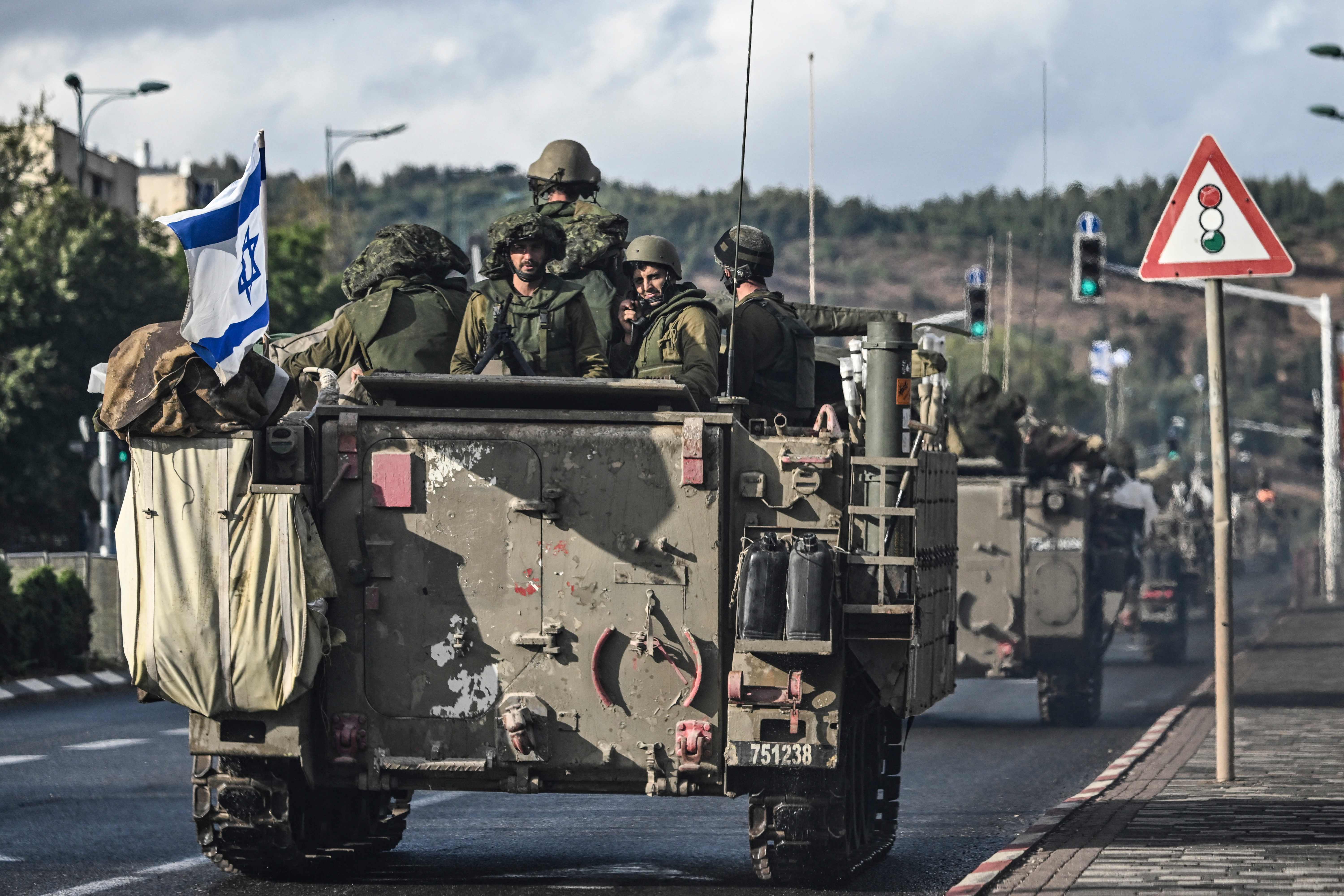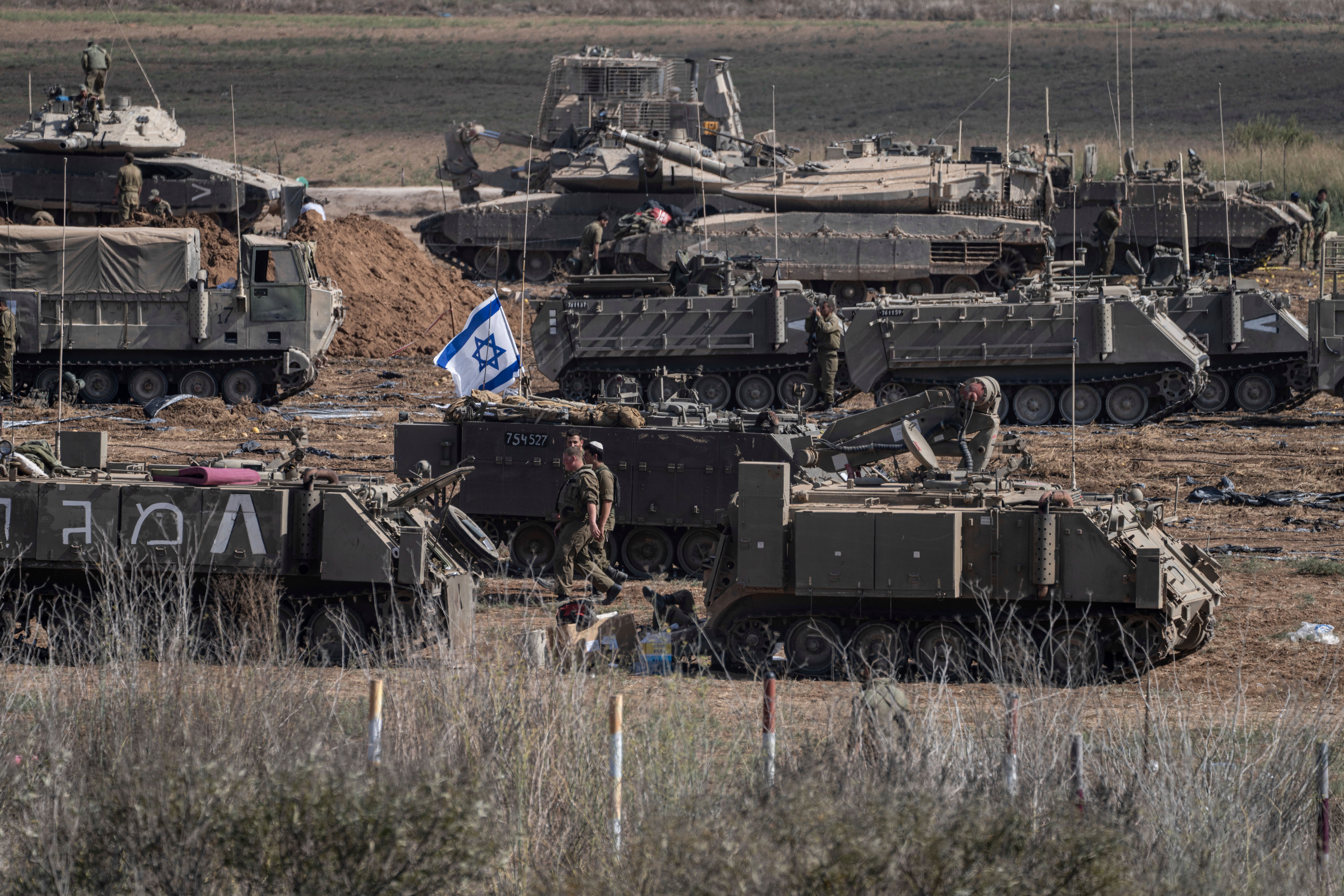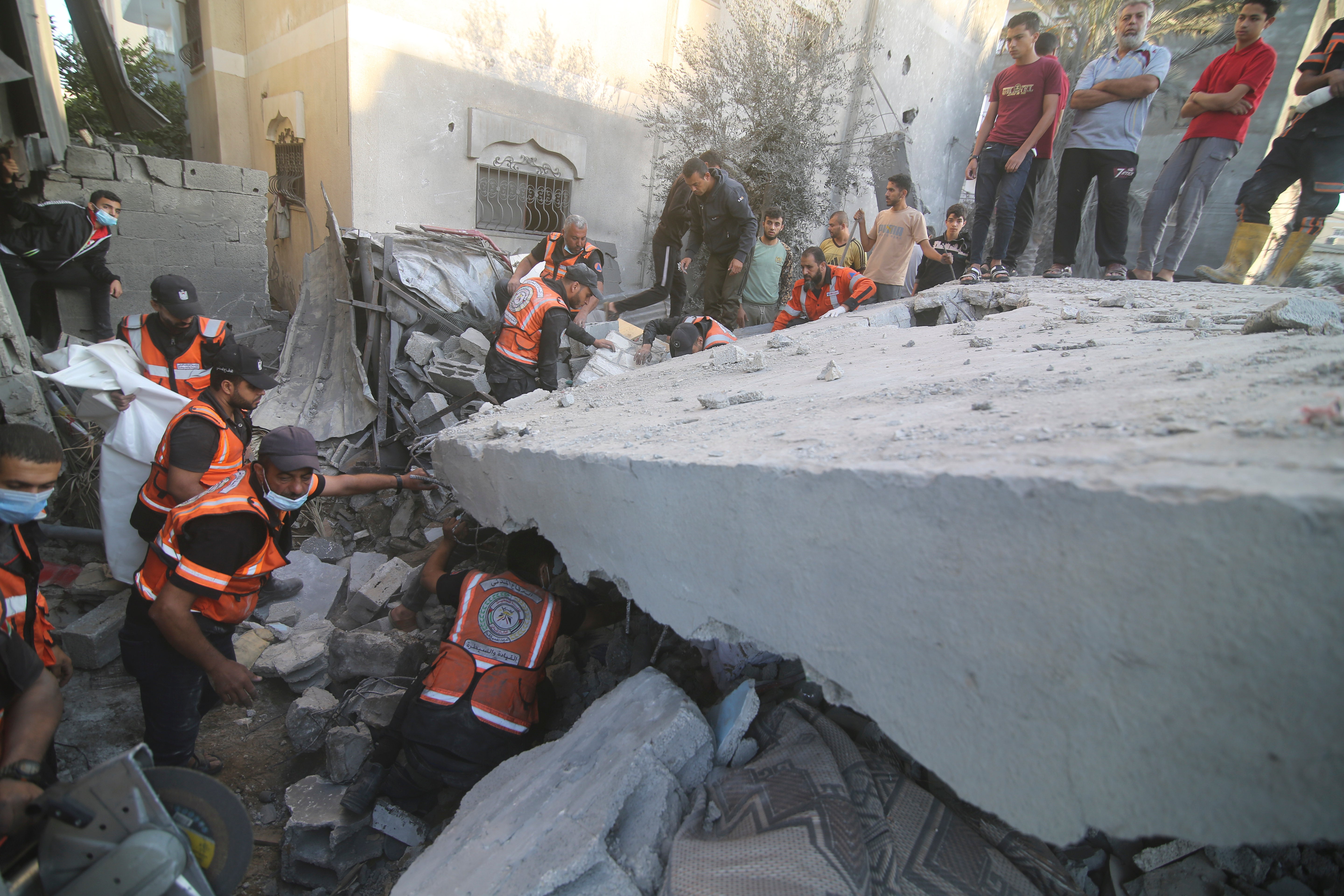‘My place is here’: Israeli reservists wait for orders at the Gaza border
Fears of mines and traps laid in the smashed buildings, and the elaborate network of tunnels under the territory
Your support helps us to tell the story
From reproductive rights to climate change to Big Tech, The Independent is on the ground when the story is developing. Whether it's investigating the financials of Elon Musk's pro-Trump PAC or producing our latest documentary, 'The A Word', which shines a light on the American women fighting for reproductive rights, we know how important it is to parse out the facts from the messaging.
At such a critical moment in US history, we need reporters on the ground. Your donation allows us to keep sending journalists to speak to both sides of the story.
The Independent is trusted by Americans across the entire political spectrum. And unlike many other quality news outlets, we choose not to lock Americans out of our reporting and analysis with paywalls. We believe quality journalism should be available to everyone, paid for by those who can afford it.
Your support makes all the difference.The mood among the Israeli troops preparing for combat across the border in Gaza was quiet and reflective as they faced brutal and bloody battles against an enemy ready and waiting.
The overwhelming firepower of the Israeli military should ultimately prevail over Hamas. But the troops waiting to go in know that some of them will not return from the long and attritional campaign that lies ahead.
Many of the young men in this mustering point in the desert do not have the experience of past combat. They are reservists who have come from home and abroad, to serve following the carnage of the Hamas raid last weekend in which families were slaughtered and captives taken away.

These troops will have to learn fast or pay the price as they face situations they have not been exposed to before – facing around 40,000 Islamist fighters, some of whom, at least, will seek the martyrdom they had pledged in the defence of Gaza.
Hamas had, it appears, planned their lethal mission for months, evading the supposedly forensic scrutiny of Israel’s military and intelligence services. They have also had months to plan their defence, with evidence emerging of mines and booby traps laid in the smashed buildings and elaborate network of tunnels under the territory.
The same tunnels can be used for ambushes, with fighters coming out of hidden openings. They are also likely to be placed where more than 150 Israeli hostages who were taken back to Gaza are being kept, making it hugely problematic to clear the underground passages.
“We know it’s going to be difficult, very difficult. We have been told this many times, we have trained for things like this in exercises,” Aharon, 23, who was working as a graphic designer in Yaffa last week stressed.
Standing next to him, Danny, a 22-year-old student, said quietly: “But this time it’ll be for real.” He spread his hand after a brief pause, and said with a grin: “But hey, we’ll do it, won’t we.”
As he spoke, the sound of shelling, which had been distant, suddenly grew louder. “That’s incoming, not outgoing, boys,” said a sergeant walking by with a smile.

More than 360,000 reservists have joined the ranks over the past week. Many of the soldiers at this temporary base, the location of which cannot be revealed for security reasons, wore combat uniforms which looked as if they had just been taken out of their packaging. A few complained about their boots which had not yet been broken in.
Martin, 29, had come from London to join. He worked in a cryptocurrency company and was due to attend a promotion interview next week. “I saw on TV on what was going on – the terrible, terrible things that was being done, and knew I had to come over. My place is here,” he said, brushing dust off the armoured personnel carrier next to him.
“I told my family what I was intending to do. My mum and sister were very worried, so was my dad, but he did not want to show it. I told my bosses I’m taking some time off, postponed the interview, packed my bags and came.”
The looming offensive will take a long time to come to any conclusion. Martin said he’ll miss seeing Tottenham Hotspur, his favourite football team, play. “It’s been a long time since we reached these heights – I was hoping to enjoy that while it lasted, especially as we’re above Arsenal.
“But I’ve to forget all that. What’s happening here is so serious, people have been massacred, there have been so many deaths.”
The Israeli death toll is 1,300. In Gaza 2,239 people have died so far from Israeli air strikes.

Did the young men feel any sympathy for the people there?
“To be honest, the people I’m thinking about are my people who were murdered – the women, children, old people. At the moment, that’s all I can think about,” said Aharon.
Danny nodded, adding: “What has happened is very personal. We’re a small country and everyone is affected.” But he wanted to add: “We can’t ignore the Palestinian people – we know the vast majority do not support Hamas. That is a big problem, we haven’t focused enough on the Palestinians. That is something that must be addressed when this is over. But in the next months we need to destroy Hamas.”
Martin also acknowledged that Palestinians have serious grievances. He said: “But you can’t say they are totally ignored; they certainly get a say in the media.”
He has been shocked, he said, by some of the things he has seen and heard in anti-Israeli demonstrations in Britain. “Some of it has been openly antisemitic, and it is very worrying for Jewish people. I think it might get worse as this war goes on.”
Major Doron Spielman joined the Israeli army at the age of 26 and has been involved in every single one of the country’s military conflicts since then, both as a full-time soldier and a reservist.
“Our military operations normally last around seven days,” he said. “This is not just an operation, this is a war and it’ll take a long time. Hamas are desperate and they have prepared for this. They will have all kinds of plans to kill. But we know we can defeat them.
“These young soldiers are very young. But Israel is a country which has long faced adversity. Here a 22-year-old is like a 40-year-old in other places – they have a maturity.
“It is a small place. Here the front line is never two hours away from one’s home. They will be fighting for not just their country, but their families. Almost everyone here knows someone who was either killed or injured in that barbaric attack or has been kidnapped. So they are defending their community.”
Reflecting on the motivation of reservists who have come to serve Israel from abroad, Major Spielman said: “I am sure they are totally loyal to the country where they live. But if you’re Jewish and see what Hamas did, then you would feel threatened, and want to stop that happening to others.
“As someone of Jewish heritage you would feel that after 2,000 years there is an army that will fight for the Jewish people, and there’ll be a sense of pride in taking part in doing so.”




Join our commenting forum
Join thought-provoking conversations, follow other Independent readers and see their replies
Comments